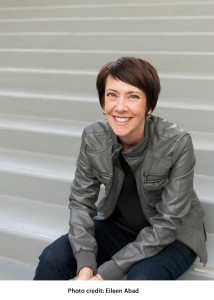“I am a brain, Watson. The rest of me is a mere appendix.”
Arthur Conan Doyle
(Sherlock Holmes in The Adventure of the Mazarin Stone, 1921)
Everywhere you turn these days, fictional characters in both adult and young adult novels are dealing with brain trouble. Maybe they’ve had their brains altered by surgery, like in YA dystopian books such as The Killables by Gemma Malley, or they’re facing the sudden or gradual onset of a neurological disorder, like in bestselling novels by Lisa Genova. Neuroscience has made its way into mainstream pop culture in a big way, and it’s a trend neither writers nor readers show any sign of tiring of.
Why the ongoing fascination with the brain? The key factor driving this interest, I believe, is fear. If I were to ask you what you are most afraid of, what comes to mind? Serial killers, shark attack, a plane crash, maybe? These are terrifying prospects we wouldn’t wish on our worst enemies. But I can think of something even more horrifying. What if I were to tell you that something would happen to you tomorrow–an accident, a doctor’s diagnosis of disease, or going under the knife for brain-modification surgery–that meant you would no longer to be able to rely on your capacity to reason, remember and make critical choices key to your existence? What if you could no longer trust the one thing you need most to not only survive in this world, but to pursue happiness–your mind? This scenario evokes a horror that cuts to the very core of who we are as humans.
Not long ago, of course, vampires, the supernatural and zombies were all the rage. They were unnerving and fascinating, but after reading, watching movies and playing video games about them for years, they are losing some of their power over us. As long as we humans band together and use that complex three-pound mass of tissue housed in our skulls to strategize, after all, we can overcome such external threats. Nothing, though, can help us escape an enemy within our own bodies. Without complete trust in our own cognitive abilities, we are lost and afraid. Edgy fiction requires strong conflict, and narrative based on neuroscience can tap into our deepest fears.
Another reason I think books on this topic are so popular is the elusive nature of the brain itself. Incredible brain research is being carried out in labs around the world, and while great strides have been made in the field, the fact is neuroscientists are not anywhere near having it all figured out. Googling neuroscience’s unanswered questions brings up intriguing lists of puzzles from “why do we sleep and dream?” to “how is information coded in neural activity?”. Our brain, often referred to as science’s final frontier, is at the very center of everything we do, and unlocking its enigmas will open unforeseeable possibilities. Add the element of mystery, then, to fear and we have the recipe for a gripping story.
Although I didn’t intend to follow any trends when I began my YA novel Blank nearly twelve years ago, the story certainly fits in with this current theme. The main character, fifteen-year-old Jessica, struggles to rebuild her life after a brain injury and resulting severe memory loss. I was obviously well aware while writing it of the often cliché treatment of the topic of amnesia in pop culture. Memory loss makes for a powerful–and sometimes, overly convenient–plot device. Memories can come rushing back, resulting in mysteries solved. Huge secrets, like being a part of a government-controlled science experiment, make for dark and captivating reading. I was more interested in the realistic side of brain injury, however, so I set out to write Jessica’s story in hopes that I could contribute something a little different to the dialogue.
Like with any trend, the question now is whether our fascination with neurological disorders and modifications will continue. There’s no way of knowing for sure. But for now, if the thought of losing full control of your mind disturbs you, you like an edgy read, or you are fascinated by the unsolved mysteries of our time, you should have no problem filling your book shelves.
—
Trina St. Jean grew up in northern Alberta but later moved to pursue degrees in psychology and education. She also has an MFA in Creative Writing from Vermont College. She now lives in Calgary where she teaches ESL and enjoys strategically evading grizzlies in the nearby Rockies with her husband and two daughters. Blank is Trina’s first novel.Visit www.trinastjean.com for more information.


